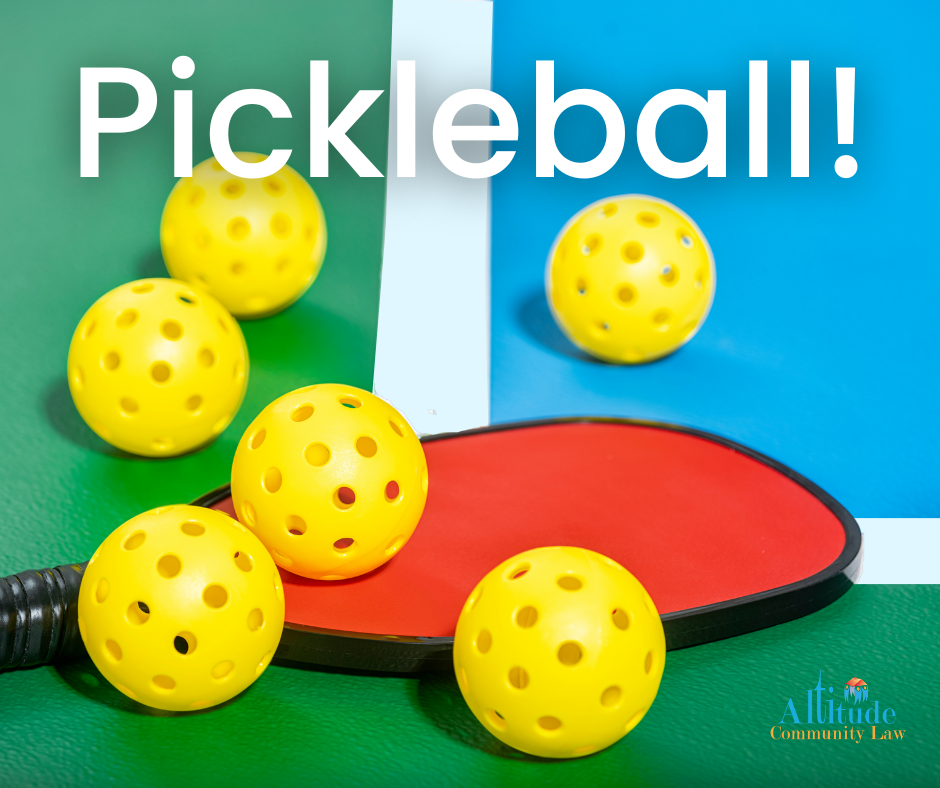

Pickle it – Sicily, 1922.
No, wait. Sorry. Wrong Blog.
*Starting Over…*
Picture it – tennis and racquetball courts everywhere, 2023…. Not a tennis ball or racquetball in sight. Why, you ask? Because we have been surrounded, astounded, and overtaken by the pickle. *ahem* Pickle. Ball.
According to USA Pickleball, the National Governing Body for pickleball, the sport originated in 1965 on Bainbridge Island, Washington. Fast forward to 2022 and pickleball was named the fastest-growing sport in America for the second year in a row. And now, welcome to 2023, where it is estimated that there are a total of 8.9 million players in the United States – twice the number of players that were reported in 2022.
Of course, I’m certain you already know how fast pickleball is growing! The question then becomes what to do about it.
The most common questions we are getting about pickleball concern how to regulate pickleball within the community as the sport continues to gain popularity. As such, here are some of our recommendations for what your association should consider when regulating pickleball so that both pickleball players and non-players alike may continue to enjoy themselves:
- Where is pickleball allowed to be played within the community? Is there a dedicated space for pickleball?
- If the pickleball players (picklers?) will be sharing a tennis court, for example, then do the nets need to remain in place? Can nets be removed?
- What hours are the pickleball courts open? Is there adequate lighting for play? If not, should the hours for play be adjusted?
- Reservations and time for play – does the association wish to or need to create a reservation list for players to reserve the courts ahead of time or will it be first come, first serve? How long may a group play on the court? Perhaps the time is limited to 1 hour if another group is waiting to play?
- Residents and guests – who is allowed to play pickleball? Are guests required to be accompanied by a resident or owner in order to pickle away?
- Pets – dogs may enjoy pickleball as well. Will you allow pets on or in the court?
- Noise – perhaps non-pickle players do not want to listen to the soothing sounds of pickleball into the night. As such, the association may wish to close the courts at a certain time each evening.
- Complaint process – the association should be prepared for receiving, and subsequently dealing with, complaints… whether those complaints are about noise, flying pickleballs invading the owner’s yard or striking a random vehicle, or arguments over the court.
- Insurance – contact the association’s insurance agent to insure (see what I did there) that the association is adequately covered with regard to this recreational activity.
Once the association has discussed the above and has a game plan in place, it will need to revise (or implement) rules and regulations regarding the use of courts or areas for pickleball play.
As always, if you have questions or require further assistance, please contact your attorney or one of our Altitude attorneys at 303-432-9999 or email us at [email protected].
And of course, if you are interested in pickling-up more about this pickleball craze, you can read more about the history of the game on their website.